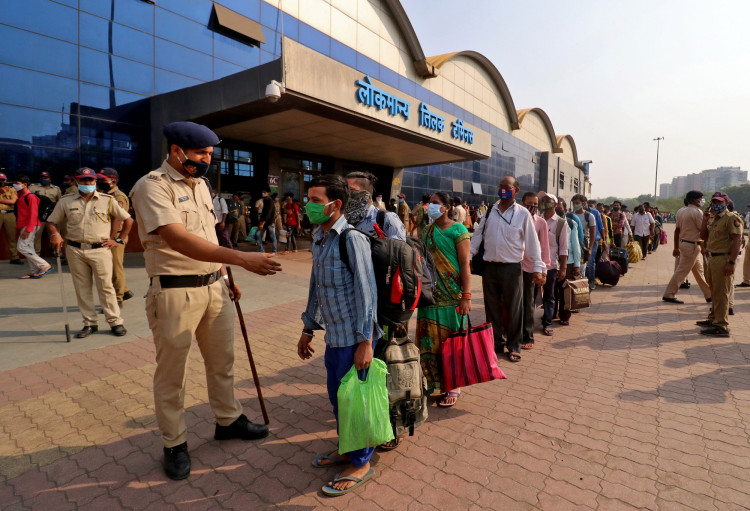The Indian government is scrambling to secure more vaccines for domestic uses as COVID-19 patients overwhelm hospitals in New Delhi, Mumbai, and other big cities.
On Monday, India's drug regulators granted Russia's Sputnik V vaccine emergency approval, as daily reported COVID-19 infections reached a record high of 185,000. The agreement paved the way for both local production and potential imports of the vaccine.
The Russian Direct Investment Fund, the sovereign wealth fund in charge of Sputnik V's overseas sales and production, has contracts with at least five Indian pharmaceutical companies to deliver 850 million doses per year.
However, RDIF has only confirmed one deal to supply 100 million doses to India for domestic use. The remainder will be exported to more than 58 countries that have put orders for the Russian vaccine.
Vaccines approved by drug authorities in the U.S., U.K., the European Union, and Japan, as well as those cleared by the WHO, will be available for use in India without the need for a local bridging trial, according to a statement issued by the Union Health Ministry on Tuesday.
The move could pave the way for Pfizer, Moderna, and Johnson & Johnson vaccines to be used in India.
The J&J vaccine, however, suffered a setback on Tuesday when U.S. regulators halted immunizations with the shot pending an investigation into rare blood clots.
Pfizer, which withdrew its application to import its mRNA vaccine after India's drug regulator's subject expert committee denied its request for a waiver for a local trial, is likely to be the biggest beneficiary of India's relaxed rules.
Vaccines developed by Pfizer, J&J, and Moderna have proven to be the workhorses of the U.S. government's immunization campaign.
The decision comes at a time when India is facing a severe shortage of vaccines, with both Serum Institute of India and Bharat Biotech International struggling to scale up production of Covishield and Covaxin, respectively, to meet domestic demand.
The epicenter of the national second wave, Maharashtra, which accounts for roughly a quarter of the country's cases, is set to go into full lockdown at midnight local time (1830GMT) until the end of April to try to control the spread.
Health ministry data showed a total of 13.9 million cases. Deaths soared to 1,027, bringing the total to 172,085.






